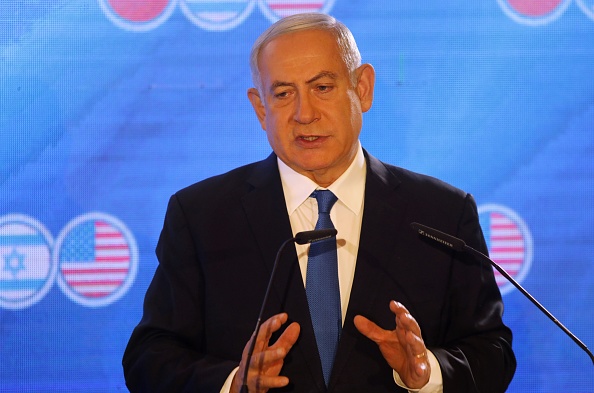As elevated tensions between the U.S. and Iran enter their second consecutive month, American policymakers have been joined by their Israeli counterparts in outlining preparations for an intensified conflict. In Washington, some Republicans are calling for an end to sanction waivers that have so far granted Tehran a tenuous link to the international economy. Meanwhile, in Jerusalem, senior officials are openly assessing the implications of open-ended conflict between Iran and the West, and laying the groundwork for their response.
CALLS GROW TO END WAIVERS FOR IRAN SANCTIONS
More hawkish voices within the Trump Administration are calling on the President and State Department to cancel the five remaining waivers on American sanctions which enable some, primarily European entities to continue doing business with Iran.
According to a recent essay in Mosaic Magazine that has been making its way through the White House and National Security Council, if President Trump “were either to revoke the remaining five cooperation waivers or to invoke the snapback in the next seventeen months, he could permanently alter the status quo, dismantling the structure that provides Iran with international legitimacy for its nuclear weapons program.”
The argument has also found an echo among Senate Republicans. On June 26, Senator Ted Cruz praised the essay as a “crucial analysis” and stated that it is “time to finally shred the deal.” After lobbying President Trump to decline renewal of the waivers when they expire in August, Senator Marco Rubio commented that his “sense of it is the administration is not in a waiver mood right now.”
ISRAEL PREPARING FOR POSSIBLE CLASH WITH IRAN
Jerusalem, for its part, has accelerated preparations for the fallout of a possible clash between the U.S. and Iran. At the recent IDC conference in Herzliya, Foreign Minister Yisrael Katz told an international forum that the period of ongoing but contained conflict with Iran may be drawing to a close. In his view, “mistaken calculations by the [Iranian] regime . ..are liable to bring about a shift from the ‘gray zone’ to the ‘red zone’ — that is, a military conflagration,” and that Israel would have to “devote itself to building up its military might for the event that it will have to respond to escalation scenarios.”
At the same time, Mossad chief Yossi Cohen accused Iran of responsibility for the repeated attacks on oil tankers in the Arabian Gulf. On July 1, Cohen told those gathered at Herzliya, “I can say to you with certainty, from the best sources of Israeli and Western intelligence, that Iran is behind these attacks.” In Cohen’s assessment, “through these attacks, Iran is trying to say to the world — a world that is afraid of escalation — that if the sanctions are not lifted, it will cause serious damage to the world oil economy.”
In a possible move to prepare for a future escalation, Israeli warplanes struck several Iranian military sites in Syria overnight on July 1, killing several fighters and civilians. Among the IAF’s targets were regional headquarters of the Revolutionary Guards south of Damascus, a scientific research center believed to be employed in weapons manufacture in the countryside around the city, and a number of positions held by Hezbollah.

A HOT AUGUST IN STORE
As Iran exceeds enrichment limits set by the JCPOA, and Washington girds for cutting off the last vestiges of the Iran nuclear deal, it is entirely possible that the Israeli assessments of imminent escalation are justified. Should this prove to be the case, the first test is likely to come on August 1, when the five remaining sanctions waivers which uphold the nuclear status quo come up for renewal. If President Trump, as some expect, declines to renew, a new round of escalation from Tehran is likely not far behind.








